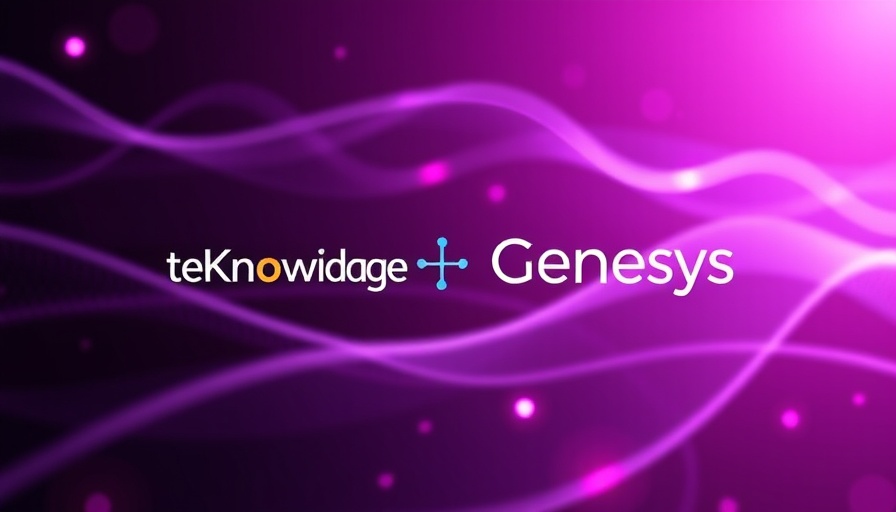
Revolutionizing Customer Experience with AI
In an ever-evolving digital landscape, Genesys and TeKnowledge are leading the charge to enhance AI-driven customer experiences globally. Their new partnership aims to empower businesses, especially in Africa, as they navigate the transition to AI-first solutions. This collaboration brings together Genesys's cloud capabilities and TeKnowledge's expertise in technology services, truly paving the way for cutting-edge customer service transformation.
The Power of a Seamless Transition to AI
Understanding the necessity of a smooth transition to AI-enabled systems is pivotal. According to Larry Shurtz, Chief Sales Officer at Genesys, TeKnowledge’s deep-rooted knowledge in customer-centric approaches helps businesses evolve from traditional systems to innovative cloud solutions. As organizations start integrating these AI tools, they can expect a significant boost in employee efficiency and overall business performance.
Local Impact: Nigeria as a Model for Digital Transformation
As noted by Olugbolahan Olusanya, Africa Territory Director at TeKnowledge, Nigeria is not only part of this burgeoning digital market but also a model for how AI can enhance customer engagement. The collaboration aims to arm Nigerian businesses with the tools necessary for sustainable growth. With over 6,000 experts at TeKnowledge’s disposal and a network spanning 19 global hubs, the implementation of AI solutions is becoming increasingly manageable.
Why AI Matters for African Startups
Tech entrepreneurs and startups in Africa stand to gain immensely from this collaboration. By harnessing AI's capabilities, businesses can automate customer interactions, streamline operations, and ultimately provide tailored experiences to their clients. This transition not only enhances efficiency but also fosters innovation and drives business value, making it an attractive prospect for investors and stakeholders alike.
Future Prospects and Opportunities
As AI continues to evolve, the opportunities it presents for businesses are unprecedented. The partnership between Genesys and TeKnowledge isn’t just a testament to the growth of technology in Africa; it embodies a future where AI is integrated in every aspect of business strategy. As this movement expands, we may witness the emergence of smart cities and towns powered by intelligent solutions, improving quality of life across the continent.
In conclusion, as tech entrepreneurs, investors, and industry leaders look to the horizon, understanding this partnership's implications on AI in Africa is crucial. This is a call to action: consider how you can be part of this transformation and the benefits it could bring to your business.
 Add Row
Add Row  Add
Add 


Write A Comment